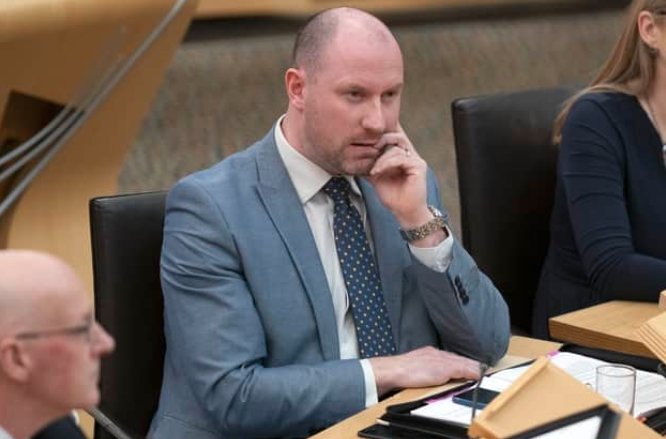EDINBURGH – Nurses, midwives, and healthcare staff in Scotland have been offered a new two-year pay deal totalling an 8% increase, as part of a package aimed at keeping NHS Scotland salaries ahead of inflation and the highest in the UK.
The offer, announced Tuesday by Health Secretary Neil Gray, comprises a 4.25% rise in 2025–26 followed by a 3.75% increase in 2026–27. If accepted, it would cost the Scottish Government approximately £701 million and be underpinned by an inflation guarantee, ensuring annual rises are always at least 1% above CPI.
A high-stakes offer
The proposal comes amid wider tensions over NHS pay across the UK, with Westminster currently recommending only a 2.8% uplift. Scottish ministers’ offer significantly exceeds that figure and could place additional pressure on the UK government and devolved administrations in Wales and Northern Ireland.
“This is a strong offer,” said Gray, praising NHS workers for their “continued commitment.” He added: “It is guaranteed to remain above CPI inflation, which gives added reassurance to staff and will ensure Scotland’s NHS workers have the best pay in the UK.”
The inflation guarantee feature is a notable shift from previous settlements and aims to shield NHS pay from economic volatility — particularly as the Bank of England warns inflation could rise again in late 2025.

Union response: cautious but open
The response from unions has been mixed, with many describing the offer as credible but holding off full endorsement pending member consultation:
-
Unison, the largest NHS union, will launch a digital consultative ballot, calling the offer the government’s “final position.”
-
GMB Scotland, which represents ambulance and clinical support staff, will also ballot its members in the coming weeks.
-
RCN Scotland said its board is reviewing the offer in detail, after having submitted a pay claim in January that called for action on both cost-of-living pressures and the historical erosion of pay.
-
The Chartered Society of Physiotherapists described the offer as “the best that can be achieved” under current circumstances.
Key details of the offer
| Component | Details |
|---|---|
| Duration | 2 years (2025–27) |
| Year 1 increase | 4.25% (April 2025 – March 2026) |
| Year 2 increase | 3.75% (April 2026 – March 2027) |
| Inflation guarantee | Always at least 1% above CPI rate |
| Total cost | ~£701 million |
| Scope | Nurses, midwives, ambulance staff, allied health professionals |
Political pressure across borders
The offer arrives just weeks before UK-wide local elections and is likely to fuel comparisons between Scotland’s devolved NHS and the systems in England, Wales, and Northern Ireland.
In a BBC interview, UK Health Secretary Wes Streeting defended the current pay review process south of the border. While acknowledging the 2.8% recommendation, he insisted “no final decision has been made” and asked NHS staff to “bear with us.”
But Unison’s UK leadership dismissed the idea that 2.8% was all that could be afforded as “ludicrous,” pointing to the Scottish deal as evidence of a political, not financial, choice.
The path to acceptance
The Scottish government’s pay proposal must now pass through union ballots and internal committees — a process that could take several weeks. If ratified, the deal would likely stabilize industrial relations in the NHS after a turbulent two years of strikes and staffing shortages.
But it also presents a budgetary challenge. With no new funds allocated from the UK Treasury, Holyrood ministers will need to find hundreds of millions within the existing Scottish budget — sparking concerns over potential cuts elsewhere.
Neil Gray declined to confirm which areas might face reductions, but insisted the pay rise was a “priority investment” in both staff morale and patient care.


















